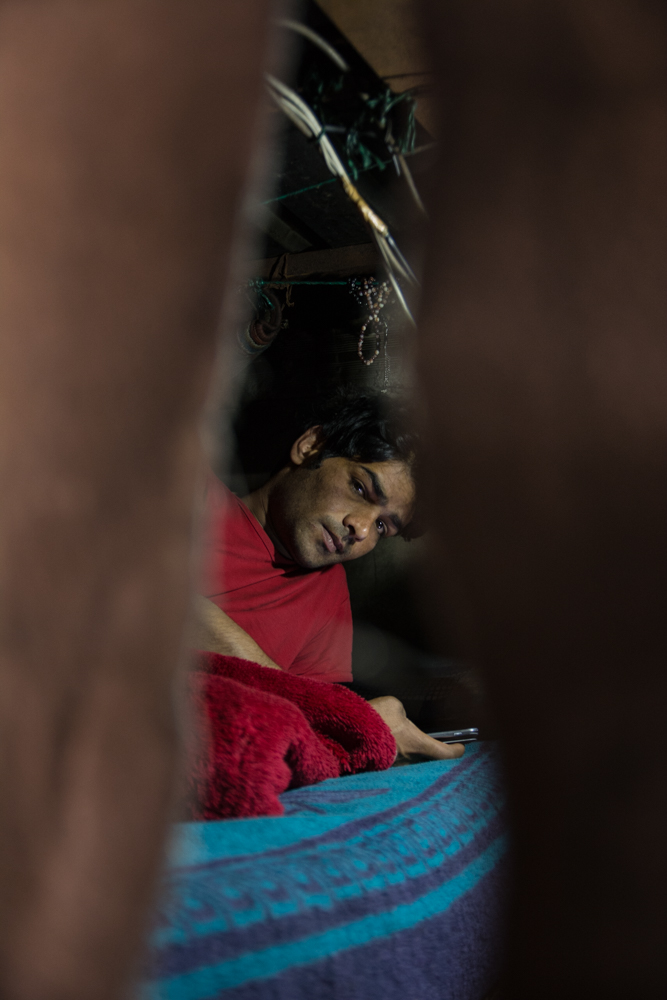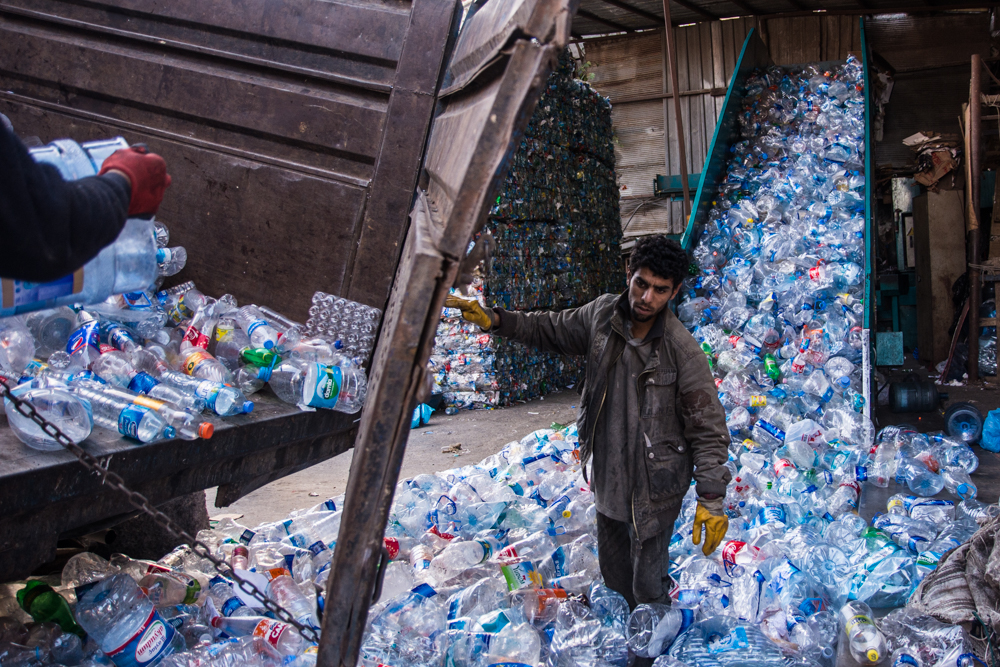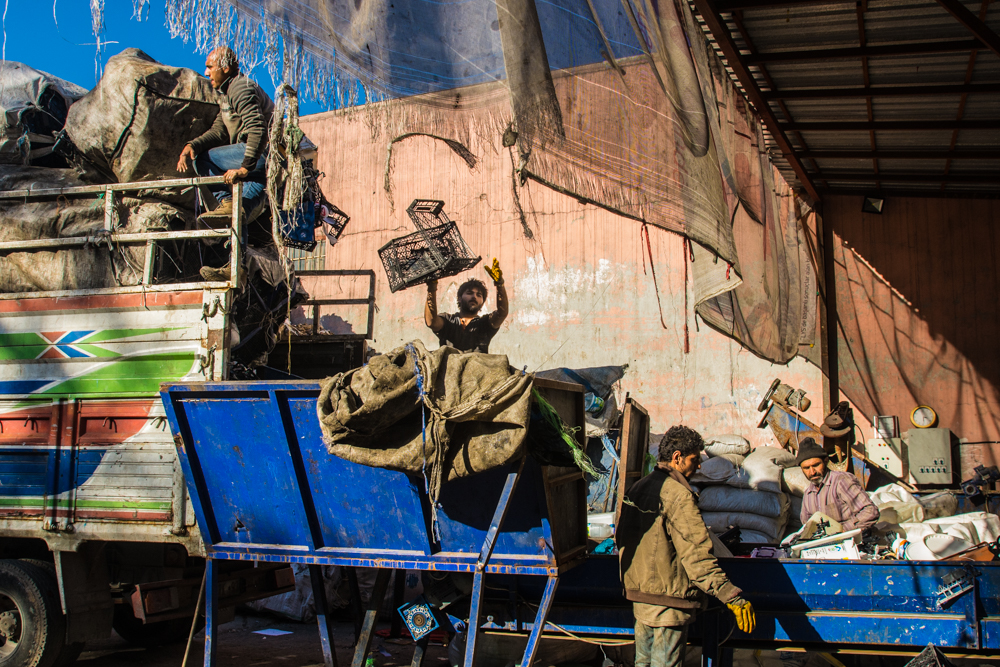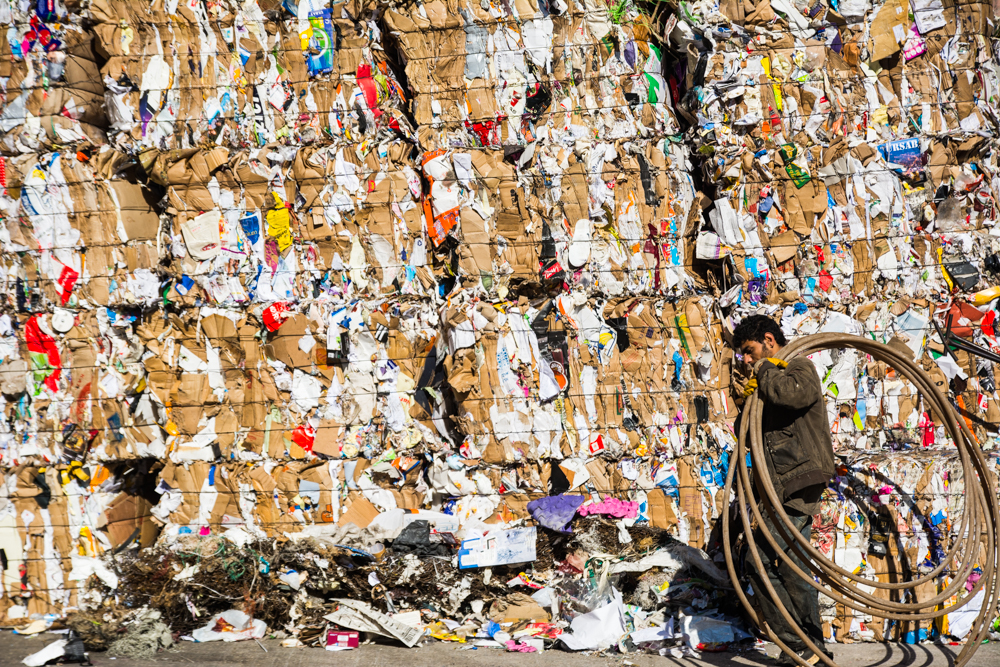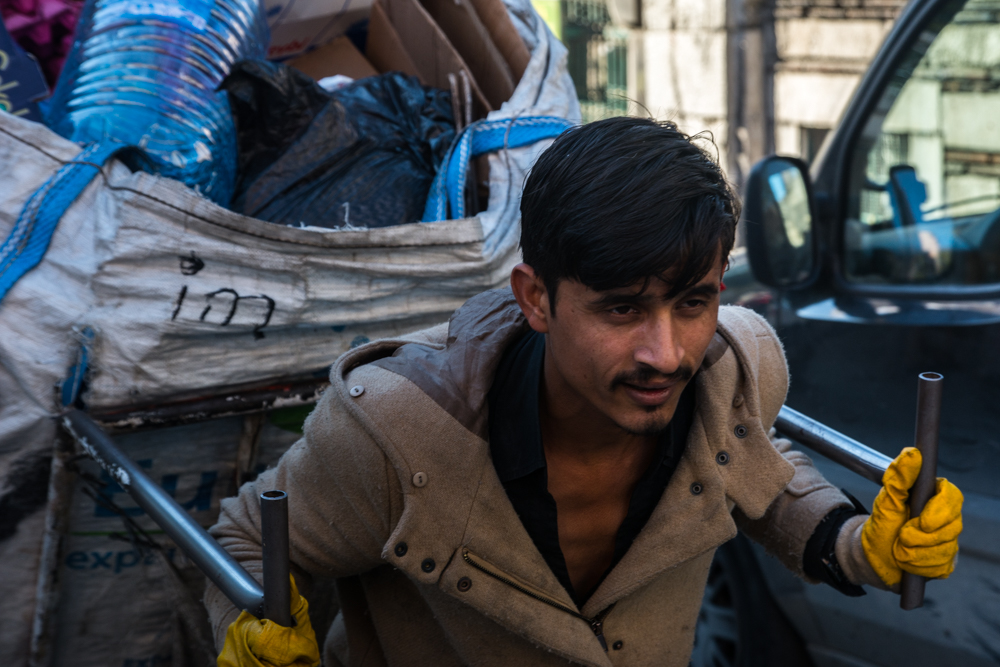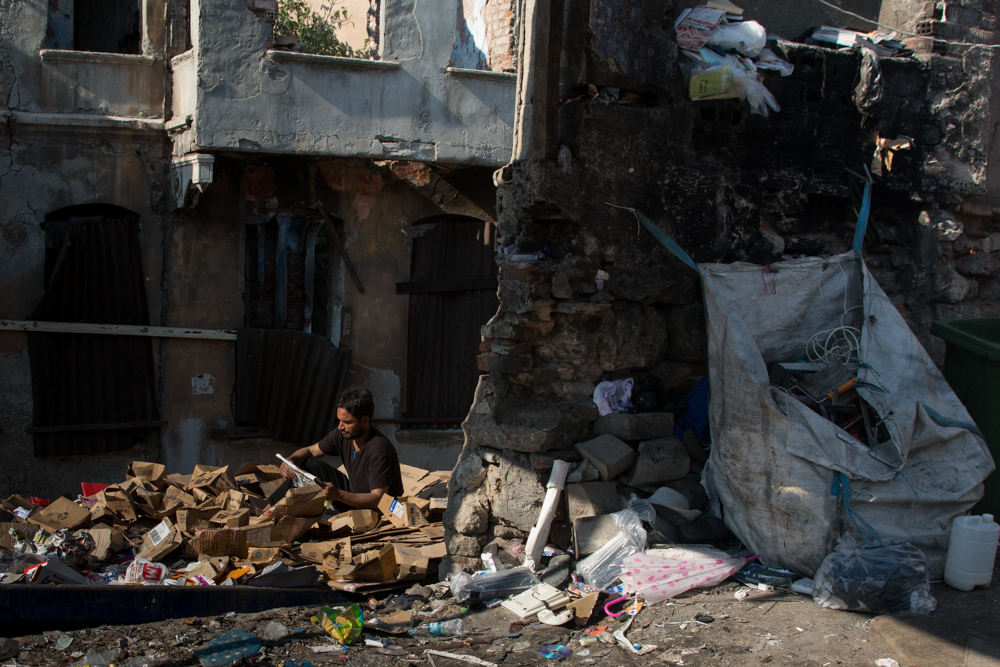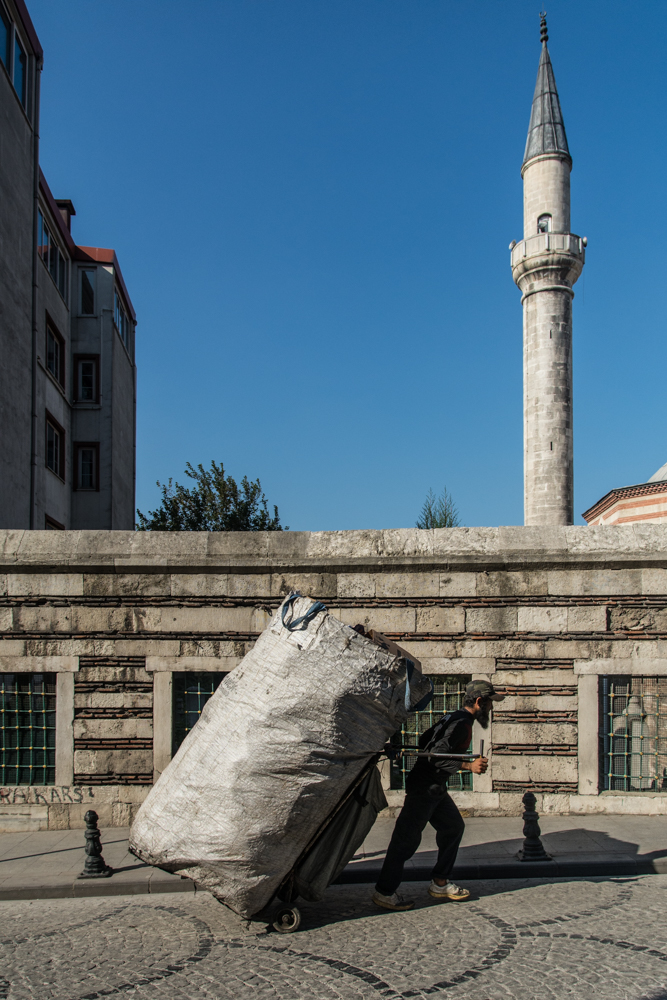Garbage Collectors
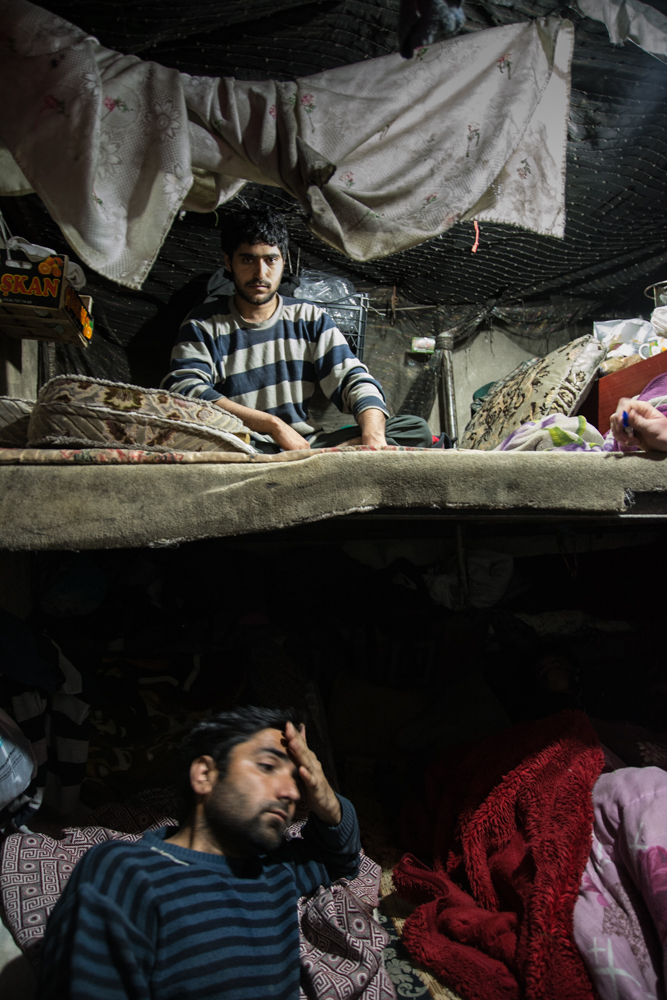
-
PhotographerJulie Weyne
Loose electrical wires. The smell of burned garbage and urine. Dilapidated houses. Syrian Children playing on heaps. The noise of machines compressing materials. Turkish music that blares from the speakers. And Afghan garbage collecters who defy the hills of Fatih to start their round. Nowadays it is difficult to imagine that Fatih once was the epicentre of Constantinople. The name ‘Fatih’ comes from the Ottoman Sultan Fatih Mehmet or Mehmet the Conqueror and it was the flourishing district of Constantinople. But now it has become a contaminated area with more than seventy illegal factories sorting out waste. The recycling process is divided in four phases: First, the materials get collected on the streets of Fatih by Afghans, Pakistanis, Syrians and Kurds. After collecting the materials, they get seperated in factories. Then the sorted materials go to the only legitimate factory in Fatih, where packets of plastic, cardboard,... are made. These packets are brought to factories outside of Istanbul. And those firms ensure that the sorted waste comes back to the economy by making new cardboard or turning plastic into new bottles. The Afghan refugees I followed, mainly do collecting rounds in the city. On average it takes them three hours to complete one round. And they get paid according to the materials and weight they collect. The refugees fulfill an essential role by not only collecting the garbage, but also by making sure it gets recycled. If they would not exist, materials would nog get recycled. Because the official garbage collectors of Istanbul throw all the waste together. The refugees play an indispensable role, but for them this work is needed too. The main goal of the refugees is to gain enough money to reach Europe. They fled from a life full of conflict, war and terror. And want to work in Istanbul to make the great crossing in the hope for a better life.
